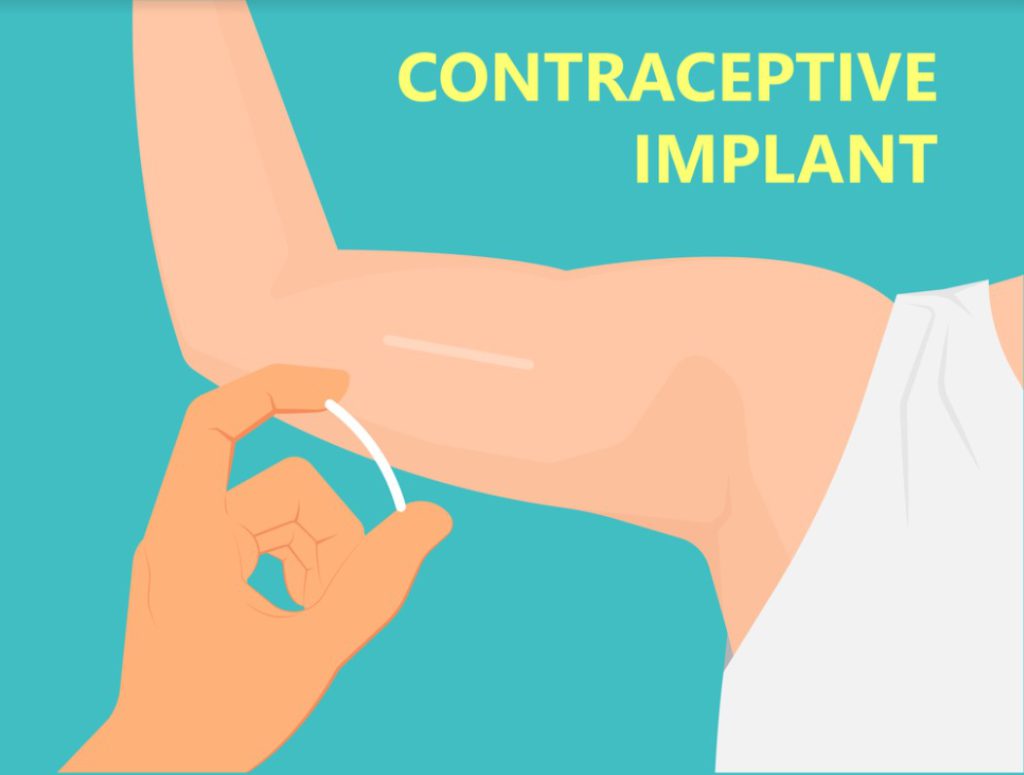Contraceptives are a great way of controlling birth. This is because they allow time for planning before conception takes place and this helps to prevent unplanned pregnancies. There are different types of contraceptives that perform different functions and can last for different periods of time. However, some of these contraceptive options may come with unusual side effects like bleeding on nexplanon after 1 year or much later.
Therefore, before deciding on a contraceptive method to use, you need to consult your doctor to know which option is best for you and your partner.
In this article you will get to understand what Nexplanon is and how it functions, how effective it is, the various side effects it can cause, and when to avoid Nexplanon.
What is Nexplanon?
Nexplanon is one of the many available prescriptions for women who do not want to get pregnant. It is a birth control therapy that comes in form of a thin rod, which is implanted in the arm.

It is as effective as the birth control pills, just that it has the advantage of working without daily dosing, unlike the pills. Nexplanon is small, thin, and very flexible and is placed under the skin of the non-dominant upper arm by your health care professional.
It functions by the use of a hormone. As a result, Nexplanon can act as a contraceptive via three main means. First, the hormone can stop the egg from being released by your ovary. Second, it can also prevent sperm from reaching the egg. Lastly, it can thin the lining of your uterus which does not accommodate the implantation of a fertilized egg.
These three mechanisms of action provide triple protection from conception. In case one fails, the others can back up. This also makes the effectiveness of the implant very high.
Is Nexplanon effective?
Nexplanon is very effective with over 99% effectiveness each year. It can last in the body for as long as three years but must be removed after the third year. It can be removed at any time before the three years elapse if you want to. This means that if you change your mind about childbirth, you can speak with your health care provider to help you get it out.
Does Nexplanon cause irregular bleeding?
Bleeding on nexplanon is one of the most common side effects of Nexplanon. For some women, nexplanon can cause changes in the normal menstrual bleeding pattern.
These changes in your menstrual bleeding pattern can occur in the first 6 to 12 months of using the implant. They include:
- Heavier or lighter bleeding during your period
If you are on Nexplanon, you may notice that your bleeding is coming heavier than it was. If your periods have been heavy before the use of Nexplanon, you may also notice that they are coming lighter.
- Longer or shorter duration of bleeding during your period
Normally, periods last for 3-5 days. However, a woman who uses Nexplanon may notice either an increase or a decrease in the number of days that her period lasts.

- Spotting between your periods
Another thing you can notice with the use of Nexplanon as it pertains to your period is spotting. Spotting means you get stained with blood, even though your period is not yet around. This is usually a common phenomenon within the first few months of use of Nexplanon.

- Varying duration of time between your period
It is not uncommon for the number of days in your menstrual cycle to vary while using Nexplanon. The average days are between 21 to 35 days but it can be longer or shorter if you’re on Nexplanon.
- No bleeding at all during the time of your period
It is also very possible that the blood may cease to flow with the use of Nexplanon. If you miss two consecutive periods, consult your doctor for a pregnancy test or conduct one at home using a pregnancy test strip.
Whichever side effect you notice, do well to consult your doctor for proper monitoring, follow-up, and counseling.

Other common side effects
Irregular menstrual bleeding is not the only side effect of using Nexplanon. Some of the other side effects include:
- Headache
- Nausea
- Mood swings
- Acne
- Weight gain
- Breast tenderness
- Back pain
However, it is important to note that these side effects are not set in stone. That is, you may use nexplanon as a birth control method without experiencing any of the side effects mentioned above.
When to avoid Nexplanon
Although Nexplanon is very effective, it is not suitable for every woman. Do not use Nexplanon if you have any of the following:
- If you are pregnant or you think you may be pregnant.
- If you have liver disease or liver tumor.
- If you have unexplained vaginal bleeding.
- If you have or have had breast cancer or any other cancer that is sensitive to progestin.
- If you have or have had conditions related to blood clots such as deep vein thrombosis (blood clot in the leg), pulmonary embolism (blood clot in the lungs), total or partial blindness (blood clot in the eye), stroke (blood clot in the brain), or heart attack (blood clot in the heart).
- If you are allergic to anything in Nexplanon.
Also, if you have any of the following medical conditions, you can speak with your doctor about getting an alternative method of birth control:
- Headaches or migraine.
- High blood pressure.
- Kidney problems.
- Gallbladder problems.
- History of depression.
- High cholesterol or triglycerides.
- Diabetes.
- Allergy to anesthetics or antiseptics.
Conclusion
Nexplanon is a very effective method of birth control. Only a few women have stopped the use of Nexplanon because of its side effects. However, the side effects of Nexplanon do not happen to all women. Let your doctor know if you are bleeding on nexplanon or experiencing any of the other side effects in this article.
It is also important for you to remove the implant after three years as that is the maximum number of years it can provide adequate protection against pregnancy. Peradventure you wish to remove it before these three years, you can speak with your doctor.
You should note that having the Nexplanon implant does not provide protection against sexually transmitted diseases (STDs) and HIV. You should seek extra protection from these diseases.

